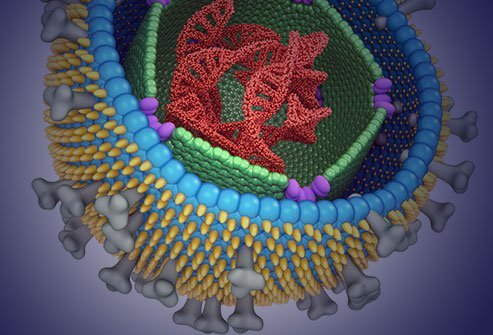How Serious Is Mono?

Generally, mono (or mononucleosis) isn’t a serious condition and resolves with proper care and management. However, the complications of mono can prove to be fatal. The symptoms may range from mild to severe and may prevent you from performing day-to-day activities. You may have more serious complications if you have a weak immunity due to HIV or AIDS or because of certain medications.
What is mononucleosis?
Infectious mononucleosis, also called “mono,” is a contagious infection caused by a herpes virus called Epstein-Barr (EBV). Teenagers and young adults are more commonly affected by mononucleosis.
It is commonly known as the kissing disease because of the way it commonly gets transmitted.
The mononucleosis virus is transmitted mainly through:
- saliva or kissing
- sharing glass or food utensils
- blood transfusions
- coughing or sneezing
- sexual contact
- organ transplants
What are the symptoms of mononucleosis?
Once you are infected with the EBV, it can take four to six weeks for the symptoms to turn up. When the symptoms appear, they tend to be mild, especially in young children. Symptoms develop gradually and may not occur at once.
The most common symptoms include:
- Extreme fatigue
- Fever
- Sore throat
- Head and body aches
- Swollen lymph nodes in the neck and armpits
- Swollen liver or spleen or both
- Rash
- Lack of appetite
- Weakness and sore muscles
Swollen liver or enlarged spleens are rare; however, in some, these symptoms may continue even after their fatigue ends.
Most of the symptoms of mononucleosis decline within two to four weeks, but fatigue may last longer. It generally takes two to three months to completely heal from mononucleosis. Occasionally, the symptoms of mononucleosis can last for six months or longer.
What are the complications of mononucleosis?
The complications of mononucleosis include:
- Enlarged spleen: If it becomes severe, the spleen may rupture. It can be identified by a sudden, sharp pain in the upper left quadrant of the abdomen. Seeking immediate medical attention is important at this stage.
- Swollen tonsils: It results in narrowing of the airway, making it hard to breathe or swallow.
- Liver disease: Hepatitis or jaundice may be seen in some
- Hemolytic anemia: Overproduction of red blood cells in the body
- Thrombocytopenia: Low platelet count in the blood
- Myocarditis: The heart muscles get inflamed
- Seizures
- Encephalitis (brain inflammation)
- Meningitis: Inflammation of tissue covering the brain and spinal cord
How to get rid of mononucleosis?
There isn’t a vaccine or cure for mononucleosis. Antibiotics or antiviral may not work against mononucleosis. Management of mononucleosis includes:
- Wash your hands regularly
- Getting adequate rest to fight infection
- Drink plenty of fluids for hydration
- Pain killers may be recommended for fever, inflammation, headaches, and muscle aches. Some of the common painkillers include Aleve (naproxen), Tylenol (acetaminophen), and Advil (ibuprofen).
- Gargle with salt water and use throat lozenges for calming a sore throat
- Avoid contact sports and strenuous exercise to prevent the risk of spleen rupture.
